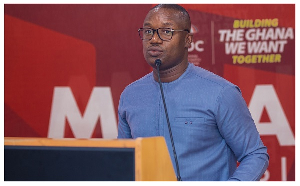A theologian has advised that discernment is vital for Christians to distinguish genuine prophetic ministries from those that exploit God’s name by creating fear and panic in the minds of people for their own selfish gain.
A statement issued by the Ghana Academy of Arts and Sciences (GAAS) and copied to the Ghana News Agency on Wednesday said the Reverend Professor J. Kwabena Asamoah-Gyadu, Baëta-Grau Professor of African Christianity and Pentecostal Theology at the Trinity Theological Seminary, Legon, noted that prophetic Christianity is gaining both significance and notoriety in Africa.
He called for discernment in order to distinguish truth from falsehood prophecy…“We must be wary of the fact that when religion flourishes, especially religion of the prophetic kind, it often generates its own charlatans.
“False prophets that undermine faith in a faithful God, demonize the religious other, and undermine the divine benefits of science and technology”.
The lecture was on the theme, “Channels of Prayer, Prophecy and Power: Contemporary Religion, New Media and Transformation of the Public Sphere in Africa”.
This follows Rev Prof Asamoah-Gyadu recent election as a Fellow of the GAAS.
Tracing the history of prophetism in the Christian tradition in West Africa, Rev Prof Asamoah-Gyadu, who is also the Director of the Centre for the Study of Christianity in Africa the Trinity Theological Seminary, observed that there had been significant growth and mass appeal of prophetic ministries in Africa in the last two decades.
This, he explained, is due in part to increased use of the media, including social media, and modern marketing strategies by the leaders of prophetic ministries.
According to him, prophetic Christianity deserves attention on account of the impact it was having in various countries, including Ghana and its transformation of the public sphere.
“Technology advancement and sophistication have led to new inventions in media that have gripped human life and imagination. Even in the modern secular West, televangelism is still a major religious enterprise.
“Prayer, prophesy and power are invisible by-products of religious experience that can be made visible or communicated through symbols, word and actions available through media technology,” he said.
The event was chaired by Prof Emerita Mrs Elizabeth Ardayfio-Schandorf, a Vice Chair of GAAS.
Religion of Thursday, 7 April 2016
Source: GNA

















